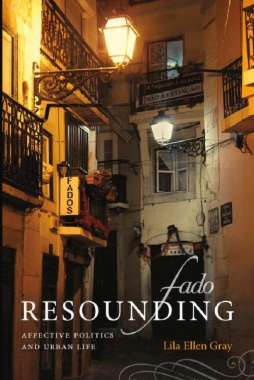Fado, Portugal's most celebrated genre of popular music, can be heard in Lisbon clubs, concert halls, tourist sites, and neighborhood bars. Fado sounds traverse the globe, on internationally marketed recordings, as the "soul" of Lisbon. A fadista might sing until her throat hurts, the voice hovering on the break of a sob; in moments of sung beauty listeners sometimes cry. Providing an ethnographic account of Lisbon's fado scene, Lila Ellen Gray draws on research conducted with amateur fado musicians, fadistas, communities of listeners, poets, fans, and cultural brokers during the first decade of the twenty-first century. She demonstrates the power of music to transform history and place into feeling in a rapidly modernizing nation on Europe's periphery, a country no longer a dictatorship or an imperial power. Gray emphasizes the power of the genre to absorb sounds, memories, histories, and styles and transform them into new narratives of meaning and "soul."
- Contents
- List of Illustrations
- Acknowledgments
- Introduction
- One. Pedagogies of the Soulful in Sound
- Two. Affects of History
- Three. Fado’s City
- Four. Styling Soulfulness
- Five. The Gender of Genre
- Six. Haunted by a Throat of Silver
- Afterword: The Tangibility of Genre
- Appendixes: Fado Vitória Transcriptions
- Notes
- References
- Index

